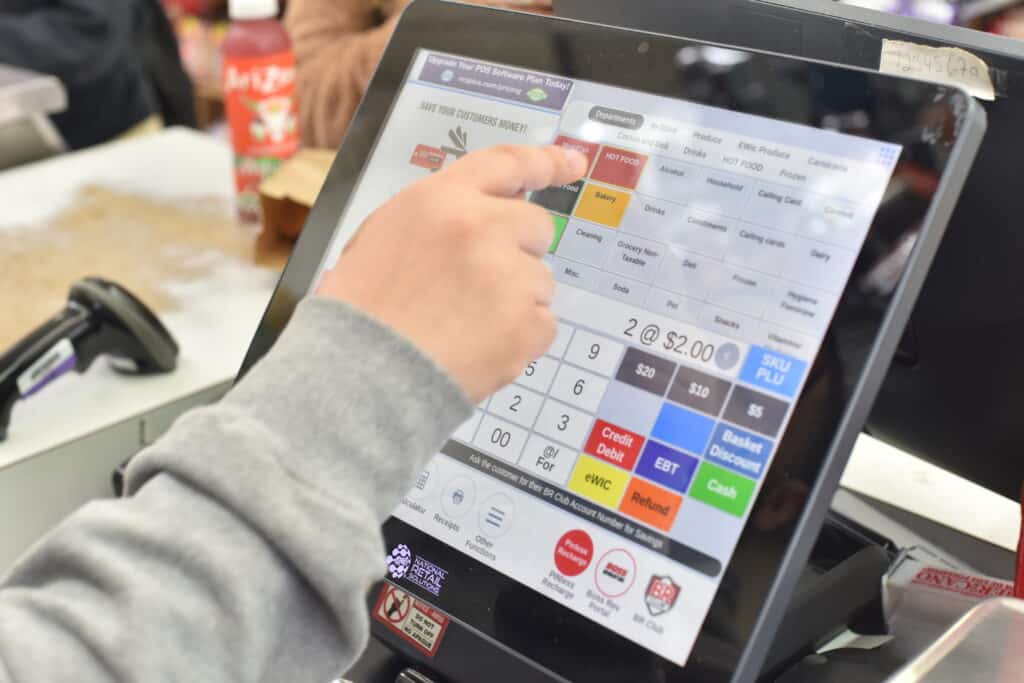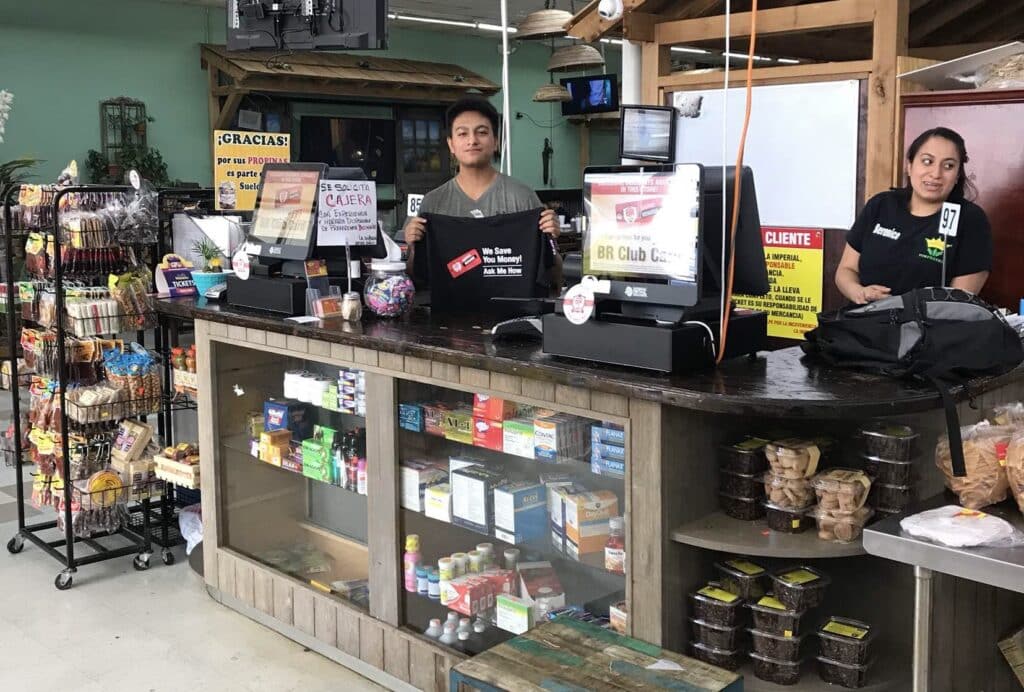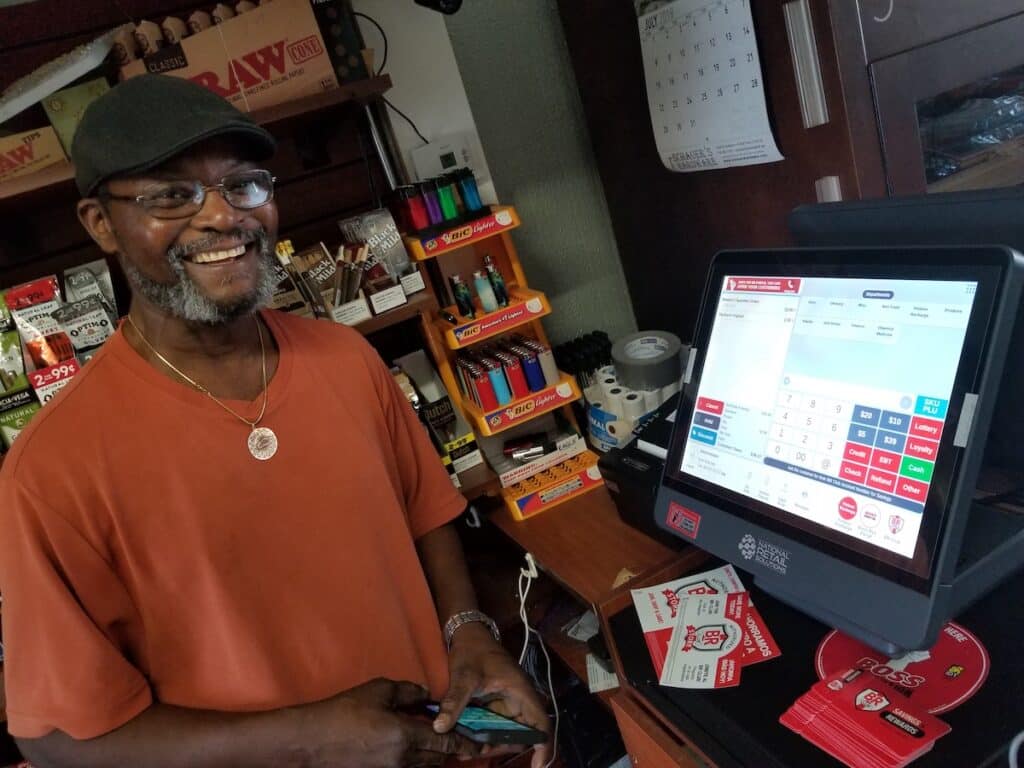- Inventory management is essential for small businesses to track stock, prevent shortages, and cut costs.
- Inventory management software helps organize products, automate reordering, and improve cash flow.
- A robust inventory system lets small businesses use real-time data to make smart decisions and increase profits.

I. The Importance of Inventory Management for Small Businesses
Inventory management refers to controlling the flow of products in and out of your business. It ensures you have the right stock to meet customer demand and stay supplied.
For small businesses, having a reliable system is essential to maximize efficiency and minimize costs.
This post will explore why effective inventory management is critical for small businesses, focusing on its benefits, challenges, and techniques.
II. What is Inventory Management?
Inventory management for small businesses is a system that helps stores and retail businesses keep track of their stock levels, anticipate future demand, and avoid shortages or surpluses.
- Track inventory levels:
Know your merchandise at any time to prevent stockouts or overstock.
- Forecast demand:
Analyze sales trends and seasonal shifts to predict needs and plan ahead.
- Order and receive stock:
Maintain optimal product levels by placing timely orders and receiving goods efficiently.
- Storage and warehousing:
Properly store products to prevent damage or loss.
- Manage stockouts and overstocks:
Minimize the costs of running out of products or holding excess inventory.
Whether you rely on manual methods or modern inventory management software, the goal remains the same: maintain balance.
Efficient stock management is crucial for improving operational flow, reducing costs, and delivering products to customers on time.
III. Benefits of Effective Inventory Management
| Benefit | Impact |
| Cost Savings | Reduces storage costs and waste from overstock. |
| Improved Cash Flow | Frees up cash by optimizing stock levels and improving turnover. |
| Enhanced Customer Satisfaction | Ensures products are available, improving order fulfillment and fostering customer loyalty. |
Effective product management gives stores several key advantages. It reduces costs by optimizing merchandise levels, prevents waste, and improves cash flow by ensuring products are sold before restocking.
Additionally, it enhances customer satisfaction by ensuring product availability, leading to better order fulfillment and repeat business.
Cost Savings:
- Reduce storage costs by keeping inventory optimized.
- Prevent waste by avoiding overstock that leads to obsolete or damaged products.
- Forecast demand accurately to negotiate better prices with suppliers, lowering purchasing costs.
Improved Cash Flow:
- Avoid overstock to free up cash that would be tied up in unsold products.
- Increase inventory turnover, so products sell and get replaced faster, generating revenue faster.
- Reduce dead stock risk, avoiding unsellable items that lead to financial loss.
Improved Customer Satisfaction:
- Ensure popular products are always in stock, meeting customer needs and reducing stockout risks.
- Speed up and improve order fulfillment to build customer trust and satisfaction.
- Provide consistent service and availability to encourage repeat business and foster loyalty.
When retail stores track inventory data effectively, they reduce wasted resources, boost revenue, and enhance the customer experience. Inventory management software or automated systems make these processes more efficient and accurate.
IV. Challenges of Ineffective Inventory Management
Ineffective inventory management can have serious consequences for small businesses. It leads to stockouts, overstock, and inefficient capital use, all negatively impacting profitability and customer satisfaction. Addressing these challenges is crucial for long-term success.
- Stockouts and Lost Sales: Stockouts can frustrate customers, leading to lost sales and missed revenue opportunities. When products are unavailable, customers may turn to competitors, damaging your business’s reputation and reducing future sales potential. Consistent stockouts can result in negative reviews and loss of customer trust.
- Overstock and Increased Holding Costs: Excess inventory comes with high storage and insurance costs, draining valuable resources. Overstocking also increases the risk of items becoming obsolete or damaged, which can lead to financial losses. Capital tied up in unsold goods limits a business’s ability to invest in other critical areas.
- Inefficient Use of Capital: Poor inventory management results in wasted resources and missed opportunities for growth. When stock levels don’t align with demand, store owners either overinvest in inventory or run short on products, harming profitability. Balancing inventory with actual demand is key to maximizing your capital.
V. Key Inventory Management Techniques
Several effective techniques exist for retail owners to manage their inventory. Each method focuses on optimizing stock levels and improving efficiency. Understanding and applying these techniques can significantly enhance inventory control and operational success.
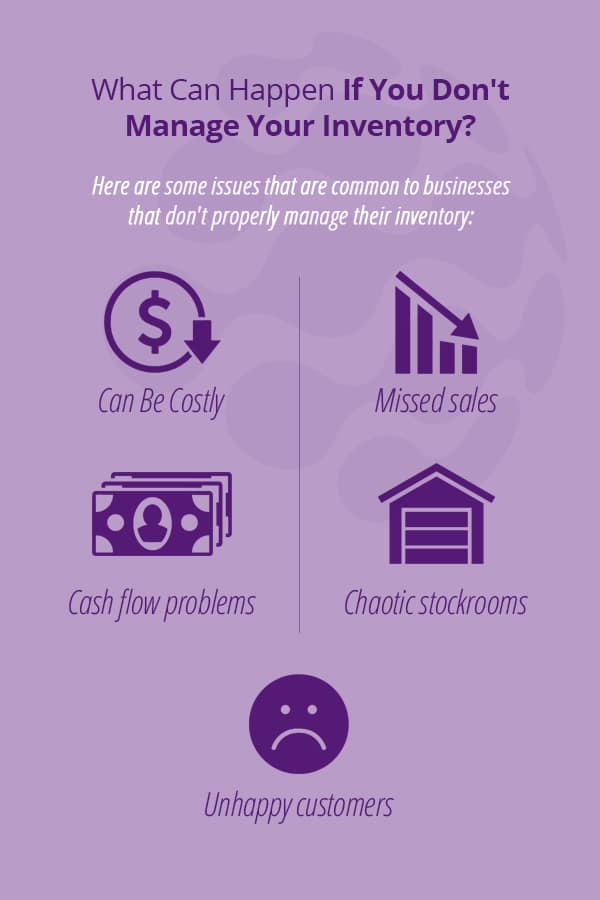
- Pricebook Management:
NRS’s inventory management solution includes an advanced Pricebook Management tool that allows shops to streamline their product listings and pricing across multiple locations. By maintaining an organized and up-to-date pricebook, stores can ensure consistency in pricing, avoid errors, and implement promotions efficiently. This technique helps small businesses track product performance and stay competitive by adjusting prices based on demand and market conditions.
- Automated Reordering:
With NRS’s automated inventory system, businesses can set thresholds for reordering products. The system automatically generates supplier orders when stock levels reach a predefined minimum, reducing the risk of stockouts and minimizing manual effort. Small businesses benefit from timely restocking, ensuring they always have the right products available without overstocking.
- Vendor Management Integration:
NRS integrates vendor management into its inventory system, allowing businesses to streamline supplier communication. This feature makes tracking orders, receiving stock, and managing supplier relationships easier. By centralizing vendor data, retailers can negotiate better deals and monitor supplier performance, further enhancing inventory control.
- Real-Time Inventory Tracking:
NRS provides real-time inventory tracking, giving businesses instant stock data access. This allows stores to make informed decisions about ordering, sales, and promotions. The ability to track inventory data in real-time helps prevent overstocking and ensures that fast-selling items are always available for customers.
Efficient Inventory Management with NRS POS
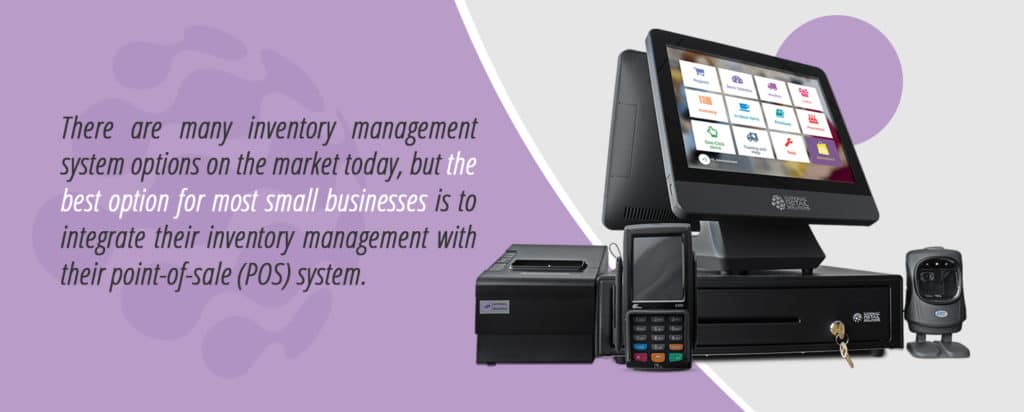
Managing inventory effectively is crucial for retail success. With National Retail Solutions (NRS) POS systems, you can simplify stock tracking, make smarter purchasing decisions, and ensure the right products are always available when needed.
Our inventory management tools allow small businesses to focus less on the details and more on growing their customer base.
Why Choose NRS for Inventory Management?
- Real-Time Stock Tracking
Know exactly what’s in stock and avoid running out or overstocking. - Automated Reordering
Set thresholds so the system automatically generates purchase orders when stock is low, preventing shortages and excess inventory. - Cost Savings
Optimizing stock levels reduces storage and holding costs while minimizing waste from outdated products. - Data-Driven Decisions
Analyze sales trends, inventory turnover, and customer demand to make informed decisions on pricing and purchasing. - Improved Efficiency
Streamline daily inventory tasks and eliminate manual errors, saving time and boosting productivity. - Scalability
Whether expanding your product range or opening new locations, our system grows with your business needs.
Ready to Simplify Your Inventory Process?
Contact NRS today to learn how the NRS POS system can take your inventory management to the next level.
FAQs:
Q: Why is inventory management important for small businesses?
Inventory management helps small businesses keep the right amount of products on hand, ensuring smooth operations and customer satisfaction. It prevents overstocking, reduces costs, and improves cash flow.
Q: How does inventory management software help small businesses?
Inventory management software automates tracking, ordering, and stock analysis. It helps retail stores track inventory data in real-time, reducing errors and allowing for smarter purchasing decisions.
Q: What are the key benefits of using an inventory system?
An inventory system helps businesses manage stock levels, track product movement, and make data-informed decisions to avoid stockouts or overstocking, ultimately improving profitability.
Q: How can I track inventory data effectively?
An automated inventory system is the best way to track inventory data. It provides real-time visibility into stock levels, helps forecast demand, and ensures orders are placed at the right time.
Q: How does inventory management software save costs for small businesses?
- The inventory management software ensures that you only purchase what’s needed when needed by optimizing stock levels, reducing carrying costs, and preventing overstocking or underordering.


